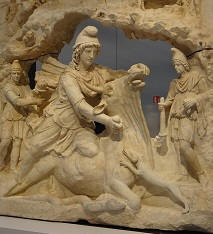

I deas and Innovations of Siyawash Awesta
(David Abbasi)
Siyawash Awesta, an Iranian writer, philosopher, researcher, and intellectual,
has contributed numerous innovations in the cultural, religious, philosophical,
and media fields. Some of his most remarkable ideas and initiatives include:

Cultural and Social Innovations
Linguistic and Identity Innovations
Philosophical and Religious Ideas
Media and Literary Activities
Critical and Enlightenment Approach
Conclusion
Siyawash Awesta can be regarded as one of the great contemporary Iranian
innovators, who has left a lasting legacy in language, culture, religion,
philosophy, and media through his works in multiple languages. His contributions
have been praised by dozens of thinkers, scholars, and philosophers
worldwide—including five French presidents. Some of these tributes to his works
appear in his book The Avesta Doctrine – 7000 Years of Civilization,
recently published in Persian, French, and English, and now available on Amazon.
By founding new rituals, festivals, calendars, words, and modern Iranian
traditions—alongside his extensive writings and media activities—he has played a
major role in preserving and reviving Iranian identity. This revival has become
evident across the world in intellectual, economic, political, and secular
spheres.
Four years ago, Awesta introduced to the world the secular, non-Muslim,
Zoroastrian- and Mithra-inspired personalities of Iranian origin. At the time,
few knew that the Speaker of the Parliament and the second-ranking political
figure of Norway, the founder and president of Uber, the leader of the German
Green Party, and many leaders of major European political parties were of
Iranian descent. Likewise, dozens of ministers, members of parliament, and heads
of major companies such as McKinsey are Iranian. Among them was the late
Firouz Naderi, a longtime friend of Siyawash Awesta, who managed a major
division of NASA with over a thousand employees and directed the Mars
exploration program.
In recent years, many artists who had previously written and performed songs for
Islamic figures openly declared their support for Awesta’s ideas, apologizing
for their past Islamic-themed works. They even formally requested in their wills
that their remains be cremated according to Aryan, Zoroastrian, and Mithraic
traditions. Among them were Prince Alireza Pahlavi, Master Akbar Golpa,
Farhad Mehrad, writer and journalist Torab Soltanpour (close friend of the Shah
of Iran), Faramarz Aslani, Eman Montaqi, Abbas Kia-Rasmi, Ali Moallem, and
Shahrokh Shahid.
Although due to direct or indirect interventions of the Islamic Republic’s
security services, or family pressures, the cremation wishes of some were not
carried out, Empress Farah Pahlavi, by cremating her son Prince Alireza
Pahlavi, demonstrated a new act of courage to her family and to the world.
Similarly, the family of the great Iranian musician Faramarz Aslani, by
cremating his body in the presence of Crown Prince Reza Pahlavi, inscribed a new
chapter of resistance against Islamization and a return to ancient Iranian
thought, culture, and traditions.
Journal ETOILE Founder Director David Abbasi "Siyavash Awesta" since 1986 - Institut Awesta 66 av des CHAMPS ELYSEES 75008 Paris France - Awesta.fr institut@awesta.net Tel: 09 73 18 18 18